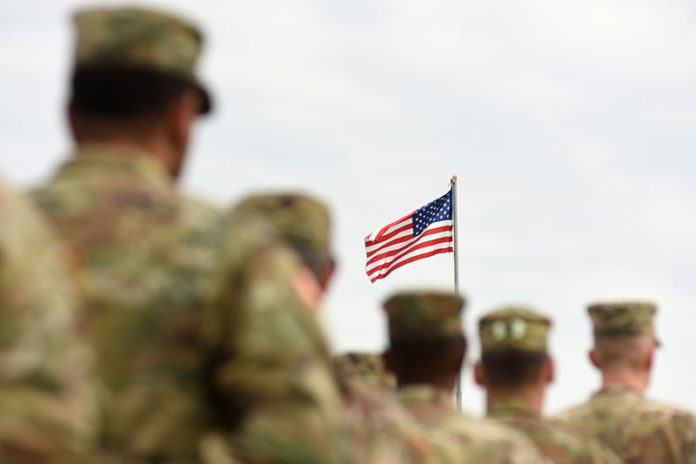It’s a matter of official record that Afghanistan has been the longest war in American history, still going on after more than 18 years. But you could make a case that the longest war is really Iraq. We initiated hostilities there in January 1991, and they’ve never really stopped.
You know something has gone wrong when a mob of the people you thought you were helping storms your embassy chanting “Death to America.” It brings back memories from 2003, when Dick Cheney informed Americans that our invading troops would be “greeted as liberators.” Yet the objects those Iraqis were flinging at our diplomatic compound were not flowers.
The protest came after the U.S. carried out airstrikes against sites in Iraq and Syria. They were directed at an Iranian-supported militia that killed an American contractor in a rocket barrage. Iran’s proxy forces have made several attacks on U.S. military facilities in recent weeks, and Secretary of State Mike Pompeo said the U.S. “will not stand for the Islamic Republic of Iran to take actions that put American men and women in jeopardy.”
Why Americans are still in Iraq to be put in jeopardy is a long story. Why Iranian-backed insurgents want to kill them is another complicated tale. But the latest events are a reminder that when it comes to Iraq, we still don’t have a clue.
Bernie Sanders and Pete Buttigieg have raised the issue because Joe Biden makes much of his foreign policy expertise. But as a senator, he voted for the invasion. Sanders voted against it, and Buttigieg thinks it relevant that Biden “supported the worst foreign policy decision made by the United States in my lifetime.”
Mayor Pete is too kind. The Iraq War was the worst foreign policy decision made by the United States in anyone’s lifetime. Over time, our leaders have made it even worse. And its effects have billowed like a toxic cloud over the national landscape, where it will foul our politics for years to come.
The 2003 war followed 12 years in which we enforced no-fly zones in Iraq, sometimes bombing targets and killing Iraqi civilians. That approach failed at one of its objectives: toppling dictator Saddam Hussein. Our leaders’ frustration at his survival served as motivation for the invasion, which was sold on deception and misinformation.
The invasion was a case of “catastrophic success.” We accomplished one mission only to be surprised and overwhelmed by the forces it uncorked. George W. Bush’s administration claimed the victory would be easy, cheap and quick. It turned out to be insurmountable, astronomically expensive, long-lasting and not exactly a victory.
By smashing Saddam’s regime, we eliminated one enemy but helped another. It’s been said that the U.S. and Iraq fought a war, and Iran won. The mullahs became a dominant factor in the aftermath, thanks to their close relations with numerous groups that had opposed Saddam.
As The New York Times reported in 2017, “Iran never lost sight of its mission: to dominate its neighbor so thoroughly that Iraq could never again endanger it militarily, and to use the country to effectively control a corridor from Tehran to the Mediterranean.”
The U.S. occupation pushed the two regimes into a close alliance. In the country we set out to liberate, our forces now face attacks from militias that Iran supports.
We left in 2011 because the Iranian-allied Prime Minister Nouri al-Maliki refused to sign an agreement protecting American troops from prosecution in Iraqi courts. The space we vacated was filled by militants known as Islamic State. In 2014, we returned to fight this new enemy in tacit cooperation with … Iran.
The bewilderment and regret the war fostered back home served to discredit leaders in both parties, as well as the premises of U.S. foreign policy. They fostered a widespread cynicism that sunk Hillary Clinton — who had supported the invasion – and boosted someone whose chief foreign policy credential was having nothing to do with such failures.
When respected experts were so wrong about something so important, the public might well wonder if maybe Donald Trump’s stupendous ignorance could really be worse. But it’s not clear he has learned the lesson that military might does not solve all problems. It would surprise no one if he lurched into a war with Iran or North Korea — or expanded the one in Iraq.
This much is true: The Iraq War was the worst U.S. foreign policy decision of Mayor Pete’s lifetime. At least so far.

































